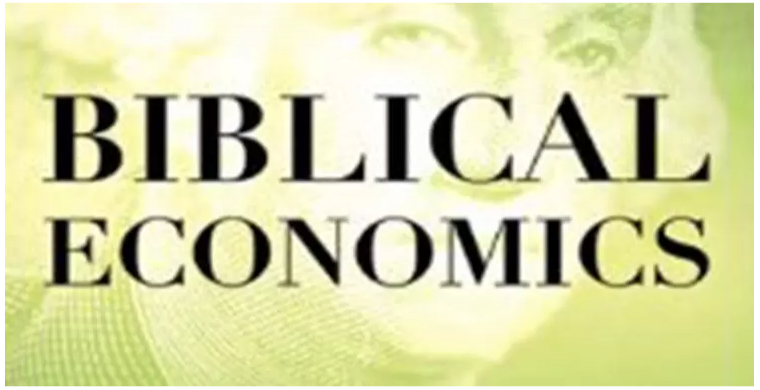The Early Church on Property, Riches, and Poverty -- A Response
By The Rev. Dr. Laurie Thompson
Special to VIRTUEONLINE
www.virtueonline.org
December 1, 2020
An article by Dawson Vosburg, The Early Church on Property, Riches and Poverty has brought forth a response from the Very Rev. Dr. Laurie Thompson a seminary dean and president.
Vosburg writes: Frequently, Christians inclined toward economic egalitarianism point to the communal economic practices in the book of Acts as a clear precedent of economic egalitarianism and perhaps a primitive form of socialism. However, frequently defenders of contemporary laissez-faire economic arrangements point out that the communal property of the Jerusalem Christians was voluntary, not coerced by the government, and thus cannot be used in contemporary arguments about political economy. There are a number of issues with this objection: for one, this does not mean it is impossible to draw any contemporary political implications (namely, that the Christian ideal is for economic equality), but only that political implications are not required by the text.
The major problem with this objection, however, is that it smuggles in the idea that the earliest Christians believed private property morally belonged to whoever held legal right to it. While the texts of the New Testament do not have strong, explicit claims about private property, the witness of Christian leaders writing in the few hundred years following the first generation of the apostles is incredibly clear: God has a different idea of what belongs to whom than modern Americans do.
You can read the full story here: https://www.evangelicallaborinstitute.org/post/the-early-church-on-property-riches-and-poverty?fbclid=IwAR0aI95JCGZN6R3_w6Vsn9mBl1TSSZ3w7DeYgrSzo7aA_ftiQQ-SgUwMpa4
Dr. Thompson responds:
It is provocative, and it does address a counterpoint to the view given to me by my college principal, Alec Motyer, many years ago. Alec articulated the view that Acts defended private property, since they had property to share with each other. Vosburg is using the Patristic quotes to suggest that communal ownership is the biblical model.
I think this kind of approach is making a categorical confusion error.
First, I think most would accept that the biblical theology of property is one of stewardship, that is, we all act as stewards on God's behalf.
Second, we have different views on humanity and the consequences of sin. I worry that those who espouse utopian communal models are being naive about the reality of sin in individuals and in communities. I have looked at many communal models, from early monastic to 19th century examples (The Harmonists, Shakers, etc.), and then to modern efforts (The Ark in Springfield, MA in the 1970's intrigued me) - many seem to collapse because of a naive view of brokenness and sin.
Third, a naive view of sin leads to a naive and wrong view of redemption. Is a communal ideal an expression of God's redemptive act today? Well, perhaps, to some degree it is. But I would argue that God has bestowed on us redemptive boundaries in this time of interim to prepare for the kingdom. Thus, for example, God gave us marriage between a man and a woman in what Michael Green once described as a prognostic curse (I cannot find a source on this but I remember discussing it many years ago, perhaps with Michael) - While the destination is full unrestrained love (they shall neither be married, nor given in marriage) in the kingdom, this side of the final judgment we live by redemptive patterns that move us forward and yet protect us from our sin. To use another metaphor, it is like learning to ride our bike; we still need our training wheels for a while yet.
Fourth, the polarity between individual ownership models and corporate ownership is a dynamic one. As the Church, we have to wrestle with a dynamic move between the individual and the community. It can never be as simple as all one or all the other. Time and context matter in this regard. Throughout scripture, there is such a movement. One thinks of the proverb cited in Ezekiel, "And it will no longer be said that a father has eaten sour grapes and set his teeth on edge". Here the individual choice and role is affirmed, yet in other circumstances communities are judges as a whole, such as Korah's rebellion, or Joshua's judgment of the five (Joshua 10:16-28).
Yet to move from these more salvific passages to the subject of property again, I still find Luke 16 to be a control in respect to stewardship and property. I have read and heard many distorted treatments of this passage, but I think Leon Morris (and his usage of Derrett) in his commentary on Luke still makes the clearest understanding. For him the laws of agency dictate that the steward, once fired, has no responsibility whatsoever. But the steward returns to the ones who owed him, despite having no legal obligation to do so, and uses self-interest to put things right, getting his debtors to pay what was right and reasonable in the first place.
The movement between two valid poles of truth - which I think applies well to the dimension of communal/corporate ownership of property and private ownership. Both are true in one sense, but they need each other to be fully truthful.
The Very Rev'd Henry L Thompson, D. Min ("Laurie") is Dean/President and Associate Prof. of Liturgical Studies at Trinity School for Ministry based in Ambridge, PA














